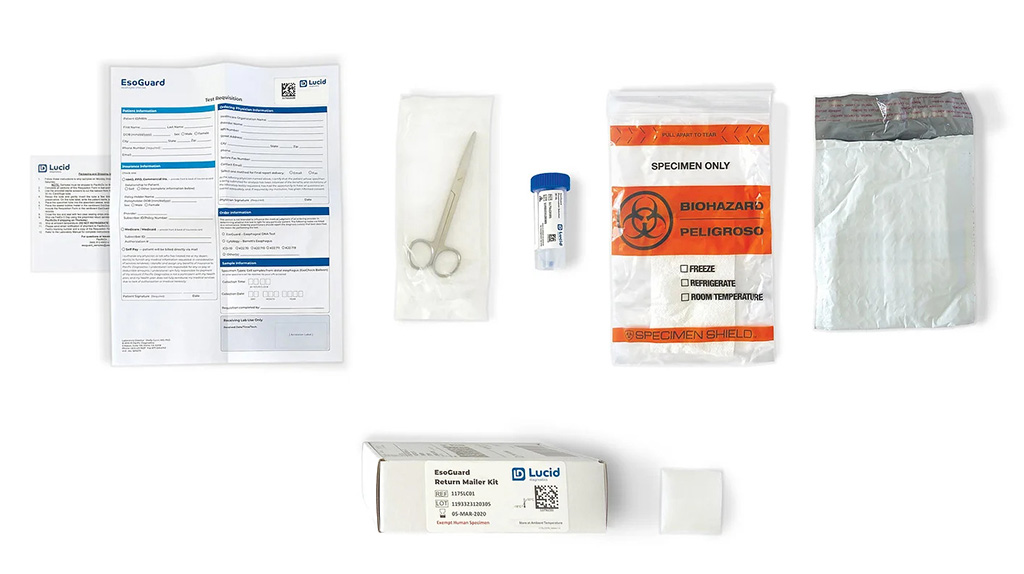Next-Gen Esophageal DNA Test Offers Enhanced Assay Performance and Lower Costs
Posted on 14 Dec 2023
Chronic heartburn may indicate Barrett’s Esophagus (BE), a precancerous condition where the esophagus lining is damaged due to digestive fluids. Although BE itself doesn't manifest symptoms, it significantly increases the risk of developing esophageal adenocarcinoma (EAC), a dangerous cancer. Many individuals with BE are unaware of their condition and consequently, their elevated cancer risk. Timely identification of BE and precancerous cells is crucial for effective monitoring and intervention, preventing the progression to fatal esophageal cancer. Now, an advanced test for detecting esophageal precancer has demonstrated improved assay efficiency and cost-effectiveness in comprehensive validation studies.
Lucid Diagnostics (New York, NY, USA) has launched EsoGuard 2.0, its next-generation EsoGuard Esophageal DNA test. The EsoGuard test begins with extracting DNA from esophageal cells gathered using the EsoCheck Cell Collection Device. This DNA undergoes bisulfite conversion, tagging unmethylated sites. It then focuses on two genes, VIM and CCNA1, identifying 31 methylation sites linked to esophageal precancer and cancer. These sites are amplified using polymerase chain reaction (PCR) and sequenced through next-generation sequencing (NGS) methods. Sophisticated bioinformatics software then analyzes this sequence data, calculating the methylation proportion at the 31 target sites, leading to either a positive or negative EsoGuard result.

The original assay version employed a singleplex method, processing each gene separately due to the division of DNA. EsoGuard 2.0 innovates with a multiplexing approach, allowing simultaneous analysis of both genes from a single DNA sample. This advancement enables the lab to run the assay thrice, obtaining consensus on positive and negative results, thereby reducing errors in low positive samples near the threshold. The next-gen assay has undergone extensive analytical and clinical validation, including direct comparisons of multiplexed triplicate consensus against singleplex methods, adhering to CLIA standards. Its clinical validation encompassed samples from the ESOGUARD-BE-1 study, showcasing heightened sensitivity and specificity.
“EsoGuard 2.0 improves upon EsoGuard 1.0's already outstanding performance in multiple respects, including by enhancing DNA yield, streamlining down-stream processes that incorporate advanced molecular techniques and more efficient bioinformatics, and enabling higher-throughput testing,” said Lishan Aklog, M.D., Lucid's Chairman & Chief Executive Officer. “These improvements also lower the per-sample costs of the assay, which we expect to decrease even further in the coming months when we upgrade our NGS-sequencing platform to a higher-throughput model to accommodate increased EsoGuard testing volume.”
Related Links:
Lucid Diagnostics













